How Much Does It Cost To Fix An Oil Leak? A Mechanic's Guide

How Much Does It Cost To Fix An Oil Leak?
How much does it cost to fix an oil leak? This is a question that many people have, and the answer can vary depending on the severity of the leak. In this post, we'll take a look at some of the factors that affect the cost of repairing an oil leak, as well as some tips for preventing them from happening in the first place.

If you own a car, chances are you've had to deal with an oil leak at some point. While a small oil leak might not seem like a big deal, it can actually cause some serious damage to your engine if left unaddressed. One of the most common questions we get asked here at the shop is, "How much does it cost to fix an oil leak?". While the answer may vary depending on the severity of the leak and the make/model of your car, there are some general principles that can help you understand what you're looking at when it comes to oil leaks. Let's get started!
What is engine oil?
Engine oil is a lubricant used to keep engine components working smoothly and efficiently. It is made up of base oil, typically petroleum-based, and additives that improve its performance. Engine oil helps to protect against wear, rust, and corrosion, and it also helps to keep the engine clean by trapping contaminants.
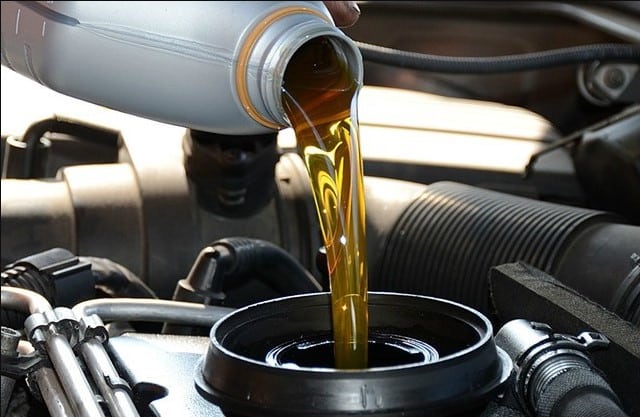
The viscosity of engine oil determines how well it flows at various temperatures. thinner oils flow more easily at cold temperatures but may break down at high temperatures, while thicker oils provide better protection at high temperatures but can cause fuel economy to suffer. Engine oil should be changed regularly to ensure optimal performance.
How much does it cost to fix an oil leak?
Oil leaks can range in cost from a few hundred to several thousand dollars to repair, depending on the cause and location of the leak. If the oil leak is due to a faulty gasket, for example, it will typically be less expensive to fix than if the leak is coming from a cracked engine block. The cost of labor will also play a role in the final repair bill, with repairs that require disassembling significant portions of the engine generally costing more than those that can be fixed with a simple patch.

In any case, it is important to have an oil leak repaired as soon as possible to avoid further damage to the engine. Left unchecked, even a small oil leak can eventually cause extensive engine damage that can be both expensive and time-consuming to repair.
Types of engine oil
Did you know that there are many different types of engine oil? In fact, there are so many types of engine oil that it can be difficult to know which one is right for your car. Below, we will discuss the different types of engine oil and what each one is best suited for. So, if you're interested in learning more about engine oil, keep reading!
Synthetic oil blends
There are a variety of engine oils available on the market, and each has its own advantages and disadvantages. One type of engine oil is synthetic oil blends. Synthetic oil blends are designed to provide superior performance in a wide range of conditions. They typically contain a higher percentage of lubricating agents than conventional oils, which helps to reduce wear on engine components. These oil blends also tend to have a higher viscosity, which helps to protect engines from overheating in high-performance applications. However, synthetic oil blends can be more expensive than conventional oils, and they may require more frequent changes.
Synthetic oil
Synthetic oil is a type of engine oil that is designed to last longer and perform better than conventional oil. This oil is made from synthetic base oils that are combined with additives to create a product that can withstand higher temperatures and protect against wear and tear. While synthetic oil costs more than conventional oil, it can help to extend the life of your engine and improve fuel economy. As a result, many carmakers now recommend the use of synthetic oil in their engines.

High mileage oil
One type of engine oil is high mileage oil. This type of oil is designed for vehicles that have driven a large number of miles. Over time, engines can start to leak oil and burn more oil than they did when they were new. High mileage oil helps to reduce these leaks and burning issues. It also contains additives that help to protect the engine against wear and tear. As a result, high mileage oil can help to extend the life of an older vehicle. If you have a high-mileage vehicle, be sure to ask your mechanic if high-mileage oil is right for you.
Conventional oil
Conventional oil is the most common type of engine oil, and it is typically made from petroleum. This oil is affordable and easy to find, but it does not last as long as some other types of oil. Synthetic oil is another popular option, and it is designed to last longer than conventional oil. This type of oil is also more expensive, but it can help to extend the life of your engine. There are also synthetic blends, which are a mix of conventional and synthetic oils. These blends offer some of the benefits of both types of oil, making them a popular choice for many drivers.
What Is Done during Oil Leak Repair?
Oil leak repair is essential for vehicles that have developed a small or large oil leak. If the vehicle is not repaired, the oil will eventually be leaked all over the engine, causing costly engine damage. The most common cause of an oil leak is a worn gasket or seal. These parts are located between the engine and oil pan, and they eventually wear out due to age and heat exposure.
To repair an oil leak, a mechanic will first need to identify the source of the leak. Once the leak has been located, the mechanic will then replace the worn gasket or seal with a new one. In some cases, additional repairs may be needed if the engine sustained damage from the oil leak. However, with proper maintenance and timely repairs, most vehicles can continue to run smoothly for many years after an oil leak has been repaired.

The cost of oil leak repair will vary depending on the source of the leak and the extent of the damage. In most cases, a small oil leak can be repaired for a few hundred dollars. However, if the engine has sustained significant damage, the repairs could cost several thousand dollars.
If you have an oil leak, it is important to take your vehicle to a mechanic as soon as possible. By doing so, you can avoid costly engine damage and keep your vehicle running smoothly for many years to come.
When to Get Oil Leak Repair?
Most car owners understand the importance of routine oil changes, but many are less familiar with the signs of an oil leak. While a small leak may not seem like cause for concern, it can actually lead to serious engine damage if left unchecked. Oil leaks can also be messy and difficult to clean up, so it's important to address the problem as soon as possible.
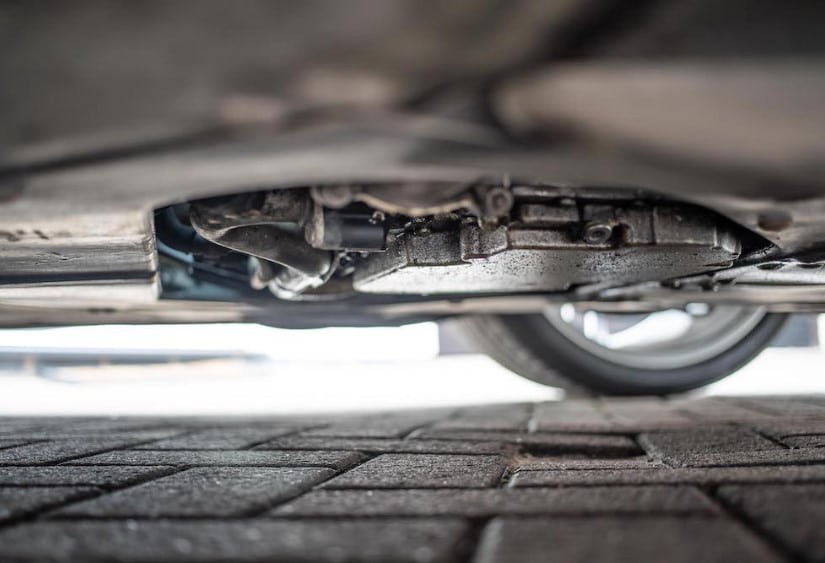
So when should you get an oil leak repair? If you notice any oil pooled under your parked car, or if your engine is burning oil faster than usual, it's time to take your car to a mechanic for an inspection. Small leaks can often be easily fixed, but larger leaks may require more extensive repairs. In either case, it's best to have the problem diagnosed and repaired as soon as possible to avoid further damage to your car.
What causes an engine oil leak?
An engine oil leak can be caused by a variety of factors, from worn seals and gaskets to damaged hoses and connectors. It's important to identify the source of the leak as soon as possible so that you can take the necessary steps to fix it. Below, we'll outline some of the most common causes of engine oil leaks.
Blown gasket
A blown gasket is often the cause of an engine oil leak. The gasket is a seal that is located between the engine block and the cylinder head. It seals the cylinders to prevent oil and coolant from leaking into other parts of the engine. When the gasket blows, it allows oil and coolant to leak into the combustion chamber, which can cause serious engine damage. In some cases, a blown gasket can also cause the engine to overheat, leading to even more damage. If you suspect that your car has a blown gasket, it is important to have it checked by a professional as soon as possible.
Excess quantity of oil
An oil leak is one of the most common problems faced by vehicle owners. The problem can be caused by a number of different factors, but the most common culprit is an excess quantity of oil. When there is too much oil in the engine, it starts to seep out through the gaskets and seals. Over time, this can lead to serious damage, and it can also make your vehicle's engine run less efficiently.
If you suspect that you have an oil leak, the best thing to do is to take your vehicle to a qualified mechanic for inspection. They will be able to identify the source of the leak and recommend the best course of action for repair.
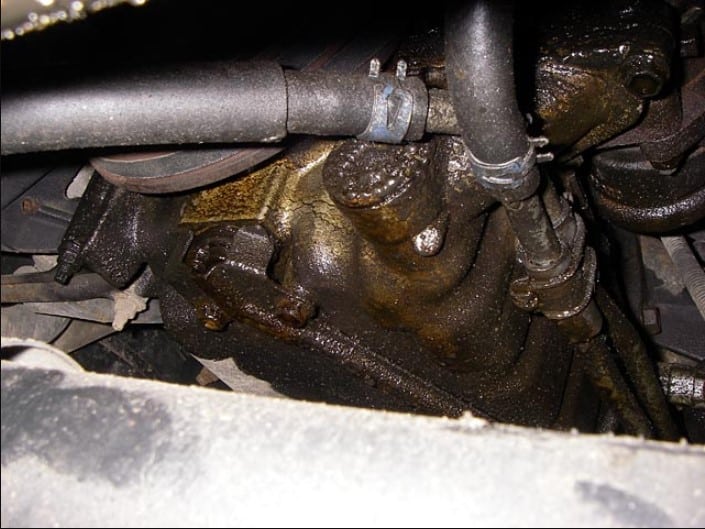
Crankshaft seal failure
An engine oil leak can be caused by crankshaft seal failure. The crankshaft seal is located between the engine block and the crankshaft, and it helps to keep oil from leaking out of the engine. Over time, the seals can wear out, allowing oil to escape. In some cases, the seals may become deformed, which can also cause leaks. If you suspect that your crankshaft seals are failing, it's important to have them repaired or replaced as soon as possible.
Degradation of oil filter
Engine oil leaks can be caused by the degradation of oil filters. Over time, the material of the filter breaks down and is no longer able to effectively capture contaminants. This can cause harmful particles to enter the engine oil, leading to a decrease in performance and an increase in wear and tear. In extreme cases, an oil filter degradation can cause an engine oil leak. While most leaks are relatively small and do not cause major damage, it is important to have them fixed as soon as possible to avoid any further damage to the engine.
Broken oil filler cap
A broken oil filler cap is one of the most common causes of engine oil leaks. The oil filler cap is located at the top of the engine, and it is responsible for sealing the engine oil. If the filler cap becomes damaged or loose, it will no longer be able to seal in the oil, resulting in an oil leak. In some cases, a broken oil filler cap can also cause the engine to overheat, as the oil will not be able to circulate properly.
What are the symptoms of an engine oil leak?
If you're seeing spots of oil on your driveway or garage floor, then there's a good chance you have an engine oil leak. The tricky thing about engine oil leaks is that they can be difficult to diagnose since there are many different potential causes. Below, we'll take a look at the most common symptoms of an engine oil leak and what you can do to fix it.
Overheating of the engine
Overheating of the engine is the main cause of an engine oil leak. When the engine overheats, the sealant that is used to hold the gaskets and seals in place begins to break down. This can cause oil to seep through these seals and gaskets, leading to an oil leak. In addition, overheating can also cause the engine oil to break down, making it thinner and less able to lubricate the engine parts. As a result, it is important to keep your engine cool in order to prevent an oil leak. There are a number of ways to do this, such as adding an oil cooler or using a higher-viscosity oil.
Dark puddles underneath your car
If you notice dark puddles of fluid beneath your car after you've parked it, there's a good chance you're dealing with an engine oil leak. While a small amount of oil leakage is considered normal, excessive leaks can cause serious engine damage. When oil leaks from your car, it not only lowers the level of lubrication available to protect your engine's moving parts, but it can also lead to overheating. In severe cases, an oil leak can cause the engine to seize up completely.
Burning oil smell
The burning oil smell is caused by your engine's oil entering the exhaust system, where it comes into contact with hot surfaces and ignites. While a small oil leak may not seem like a big deal, it can actually cause some serious damage to your engine if left unchecked. Over time, the oil will break down the seals and gaskets in your engine, leading to increased wear and tear.
In addition, an oil leak can also lead to your engine overheating, which can cause even more damage. If you notice a burning oil smell coming from your car, have it checked out by a mechanic as soon as possible to prevent any further damage.
Smoke coming out from the engine
One of the most common causes of engine oil leaks is smoke coming from the engine. When the engine is running, the oil lubricates the parts and prevents them from overheating. However, if there is a leak in the engine, the oil will escape and begin to burn. This burning oil produces smoke, which can be seen coming from the engine.
In most cases, this smoke will have a strong smell, and it may be accompanied by noise or vibration. If you notice any of these symptoms, it's important to have your car inspected by a mechanic as soon as possible. Engine oil leaks can cause serious damage to your car, so it's important to nip them in the bud as soon as you can.
Oil Pressure Warning Light
If your oil pressure warning light comes on while you're driving, it means that your engine isn't getting enough oil. This could be caused by an oil leak, which is a serious problem. If you see the oil pressure warning light, pull over and turn off the engine as soon as possible. Then, check the oil level and look for leaks. If you see any oil on the ground or on your engine, don't start the engine again until you've fixed the leak. Otherwise, you could damage your engine.
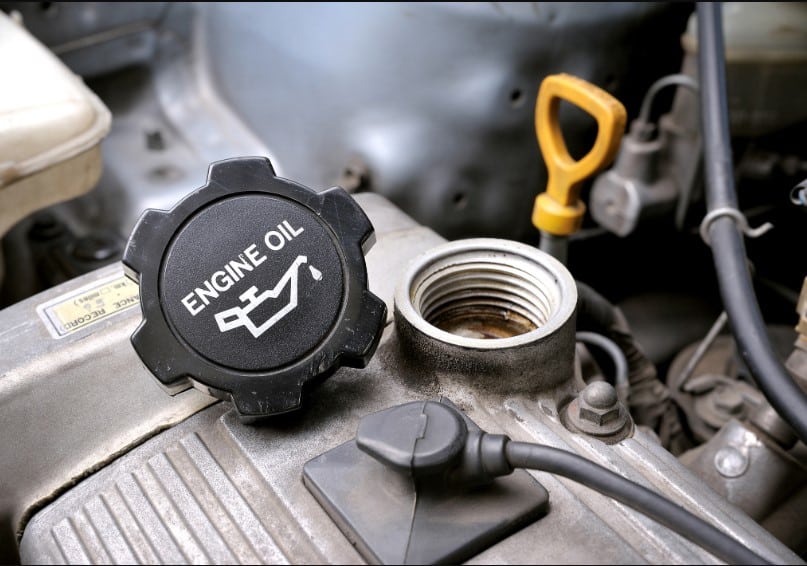
Dashboard oil light starts flickering
If your dashboard oil light starts flickering, it could be an indication of an engine oil leak. While a small oil leak may not seem like a big deal, it can actually lead to some serious engine problems if left unaddressed. If oil is allowed to leak onto hot engine parts, it can cause a fire. Additionally, Even a small oil leak can cause your engine to run low on oil, leading to increased wear and tear on the engine components.
Clunking Sound
A clunking sound coming from your car’s engine can be caused by an oil leak. When oil leaks from the engine, it can run down the side of the engine and drip onto the ground. This can cause a puddle of oil to form under the car. If you see a puddle of oil under your car, it is important to have the leak fixed as soon as possible. An oil leak can cause your engine to overheat and seize up, causing expensive repairs. If you hear a clunking sound coming from your car’s engine, check for an oil leak as soon as possible.
Less Efficient Performance
One of the most common causes of engine oil leaks is less efficient performance. When an engine is not running at peak efficiency, it can cause excess heat and pressure to build up inside the engine, resulting in seals and gaskets that are not able to withstand the pressure. This can cause oil to begin to leak from the engine. In some cases, this can also lead to engine damage. If you suspect that your engine is not running as efficiently as it should be, it is important to have it checked by a professional.
Factors affecting engine oil leak repair cost
Cars are a necessary part of life for most people. We use them to get to and from work, take trips, and run errands. When something goes wrong with our car, it can cause a lot of headaches. One common problem for drivers is engine oil leaks. Depending on the severity of the leak, it may require a costly repair. Below, we'll discuss some factors that affect engine oil leak repair costs.
Type of car you own
One of the most important factors is the type of car you own. Certain makes and models are more prone to oil leaks than others, and this can impact the cost of repairs. For example, cars with older engines may require more extensive work to fix an oil leak, as seals and gaskets may need to be replaced. In contrast, newer cars may only require a new seal or gasket, which is typically less expensive to replace.
Another factor that can affect the cost of engine oil leak repair is the severity of the leak. A small leak may only require a few ounces of oil, whereas a larger leak can cause damage to the engine and require multiple quarts of oil. As such, it's important to identify the source and severity of an engine oil leak before getting estimates for repairs.
Oil leak’s location
The cost of repairing an oil leak can vary depending on the location of the leak. If the leak is coming from the oil filter, it will be less expensive to fix than if the leak is coming from the engine itself. The most expensive oil leaks to repair are those that come from the gaskets or seals in the engine. These types of leaks can be very difficult to fix and may require a complete engine rebuild. No matter where the oil leak is coming from, it’s important to get it fixed as soon as possible to avoid any further damage to your engine.
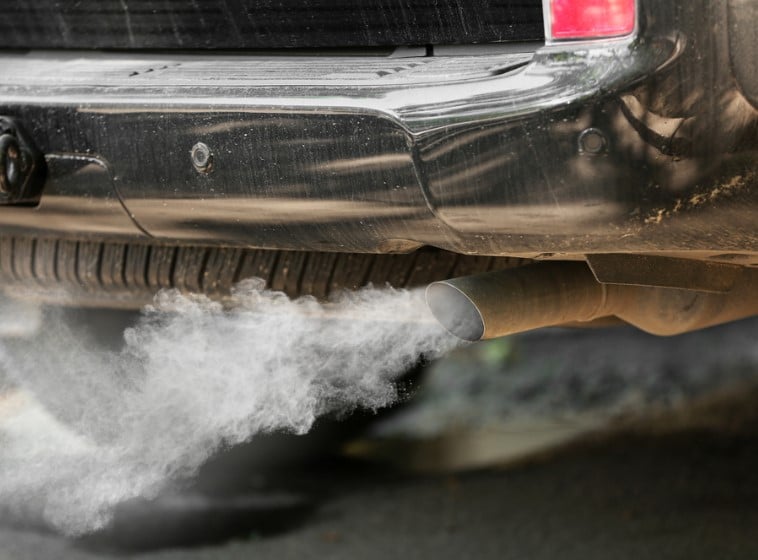
Your car’s engine type
The cost of repairing an oil leak can vary widely depending on the type of engine, the location of the leak, and the severity of the problem. In general, however, repairs are typically more expensive for engines with complex designs or require special tools or expertise.
https://autoemc.net/blog/how-much-does-it-cost-to-fix-an-oil-leak/
Nhận xét
Đăng nhận xét